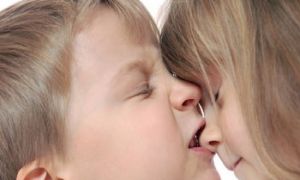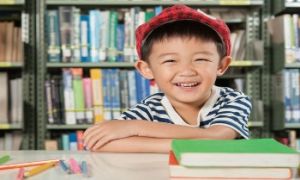

Resigning from a role in early childhood education is a natural part of career progression. Whether you’re moving on to new opportunities, prioritising wellbeing, or navigating personal changes, it’s important to resign with clarity, professionalism, and dignity. This guide outlines notice periods, signs it may be time to leave, what to say, how to write a resignation letter, and strategies for managing difficult situations.
Early childhood educators are being unfairly targeted by fear-driven narratives and reactive policy changes, despite evidence showing they are among the safest and most dedicated professionals in the education system.
Early childhood education is facing a crisis that cannot be solved with more training modules or compliance checklists. Educators are not leaving because they lack skills or passion. They are leaving because they are being treated as expendable, micromanaged to exhaustion, and denied the respect they deserve as professionals and as people.
In early childhood education, numbers matter. Ratios often dominate policy debates, but group size, the total number of children in a room, can be just as critical. As policymakers revisit standards, group size caps are emerging as a safeguard for quality care, protecting both children’s developmental needs and educators’ well-being.
In early childhood education, leadership is not just about titles; it’s about responsibility, trust, and the ability to step in when needed. One role that often sparks discussion is the Second-in-Charge (2IC). What does this position really mean, and how can services set clear expectations to support both staff and children?
In the quiet hum of a weekday morning, something felt off. Preschool doors opened, but classrooms remained silent. No greetings. No redirection. No educators. And suddenly, the world felt the consequences.
This wasn’t a strike. It was a reckoning.
Early childhood educators, those often dismissed as “just babysitters,” didn’t show up. Not because they didn’t care, but because the system stopped caring first. Their passion had been trivialized. Their safety was compromised. Their pay was insulting. And when they stepped back, everything else fell apart.
The recent announcement by Minister for Education Jason Clare that childcare centres will receive funding to close early for mandatory child safety training. But let’s be clear—child protection training is not new. Educators already undertake annual courses and ongoing professional development throughout the year. You cannot work in this industry without it. Training is essential, but it is not where the real problems begin.
Child protection courses are already mandatory. The real crisis?
Too many children per educator
Understaffed centres
Lack of inclusion support for children with disabilities
Until ratios drop and staffing rises, training alone won’t fix child safety.
Children experience adult communication not just through words, but through tone, emotional energy, facial expression, and body language. Two interactions may be equally loud, yet feel completely different to a child. Understanding this distinction is essential for safeguarding, trauma‑informed practice, and meeting regulatory obligations.
A: While stencils can sometimes support fine motor skills and tracing practice, the EYLF and NQS place a strong emphasis on child‑directed, open‑ended experiences that nurture creativity, agency, and authentic expression. This means the real issue isn’t whether stencils are “wrong,” but how their use aligns with our responsibility to prioritise process art and ensure children’s voices remain at the centre of their learning.
In early childhood settings across the country, you can walk into a room and instantly tell what kind of art culture lives there. Sometimes you see walls lined with identical paper plate animals, each one carefully guided by an adult hand. Other times, you see a riot of colour, texture, and imagination — each piece unmistakably belonging to the child who created it.
The difference between these two environments is more than aesthetic. It speaks to the heart of our pedagogy, our image of the child, and our commitment to fostering creativity, agency, and authentic expression.
 Toddlers have a greater understanding of the world around them by this stage. Their cognitive development (also known as intellectual development and thinking skills) continues… Read More
Toddlers have a greater understanding of the world around them by this stage. Their cognitive development (also known as intellectual development and thinking skills) continues… Read More
 Infants begin to develop trust when parents begin to fulfil their needs. Such as changing an infant's nappy when needed, feeding on request and holding… Read More
Infants begin to develop trust when parents begin to fulfil their needs. Such as changing an infant's nappy when needed, feeding on request and holding… Read More
 Beginning at birth the construction of thought processes, such as memory, problem solving, exploration of objects etc, is an important part of an infant’s cognitive… Read More
Beginning at birth the construction of thought processes, such as memory, problem solving, exploration of objects etc, is an important part of an infant’s cognitive… Read More
 Toddlers want to do more on their own and do not like it when you begin to establish limits on their behaviour. Tantrums can become… Read More
Toddlers want to do more on their own and do not like it when you begin to establish limits on their behaviour. Tantrums can become… Read More
 Your preschooler is now able to focus their attention more accurately and is less influenced by distractions. The intensity of questions increase as your child… Read More
Your preschooler is now able to focus their attention more accurately and is less influenced by distractions. The intensity of questions increase as your child… Read More
 John Dewey is often seen as the proponent of learning by doing – rather than learning by passively receiving. He believed that each child was active,… Read More
John Dewey is often seen as the proponent of learning by doing – rather than learning by passively receiving. He believed that each child was active,… Read More
 Toddler advance and gains new skills in Gross Motor Development milestones achieved throughout earlier years. Co-ordination and challenges that could not be performed before such… Read More
Toddler advance and gains new skills in Gross Motor Development milestones achieved throughout earlier years. Co-ordination and challenges that could not be performed before such… Read More
 Erik Erikson developed a psychosocial theory to understand how we each develop our identities through eight stages of psychosocial development from infancy to adulthood. The… Read More
Erik Erikson developed a psychosocial theory to understand how we each develop our identities through eight stages of psychosocial development from infancy to adulthood. The… Read More
 At this point preschoolers begin to interact effectively with others. Play becomes more innovative and organized and “boyfriend” or “girlfriend” begins to emerge. Preschoolers have… Read More
At this point preschoolers begin to interact effectively with others. Play becomes more innovative and organized and “boyfriend” or “girlfriend” begins to emerge. Preschoolers have… Read More
 From now, babies begin to identify and respond to their own feelings, understanding other's feelings & needs and interact positively with others. A baby's social and… Read More
From now, babies begin to identify and respond to their own feelings, understanding other's feelings & needs and interact positively with others. A baby's social and… Read More

The following article provides information on Current and Emerging Research on brain development in babies...
See more...
Biting is typical behaviour of infants and toddlers that we often notice. As the children...
See more...
Learning styles, according to Howard Gardner, are the ways in which an individual approaches a...
See more...© 2009-2026 Aussie Childcare Network Pty Ltd. All Rights Reserved.

